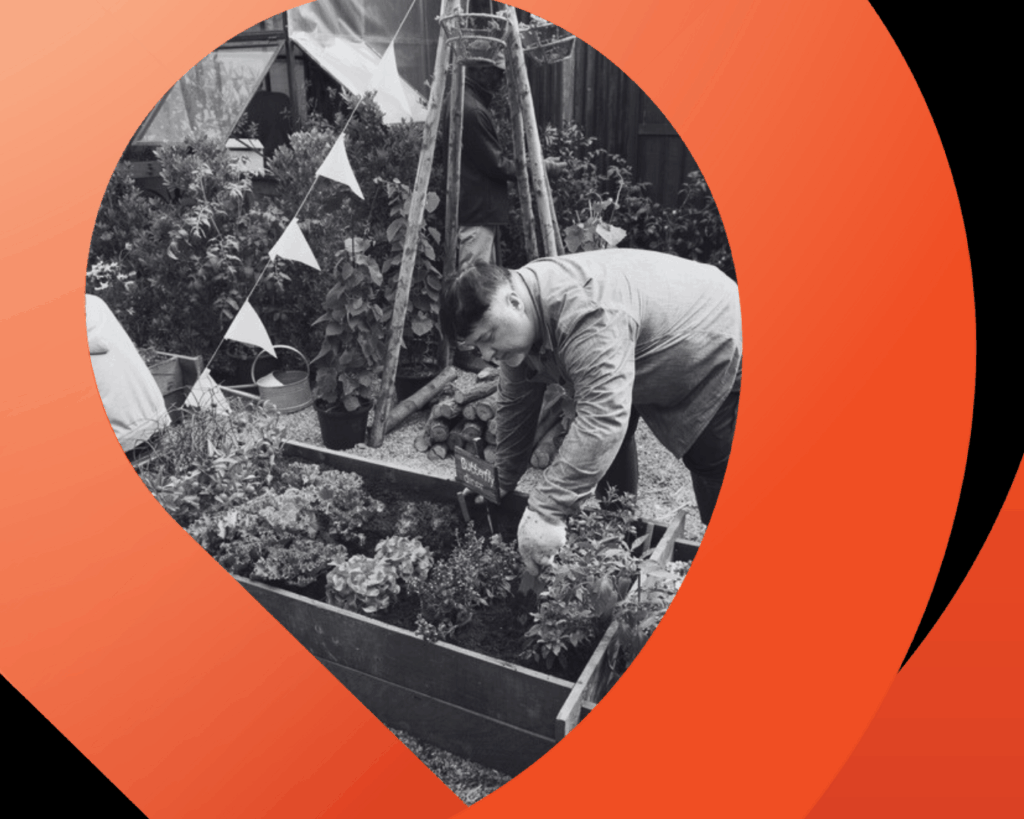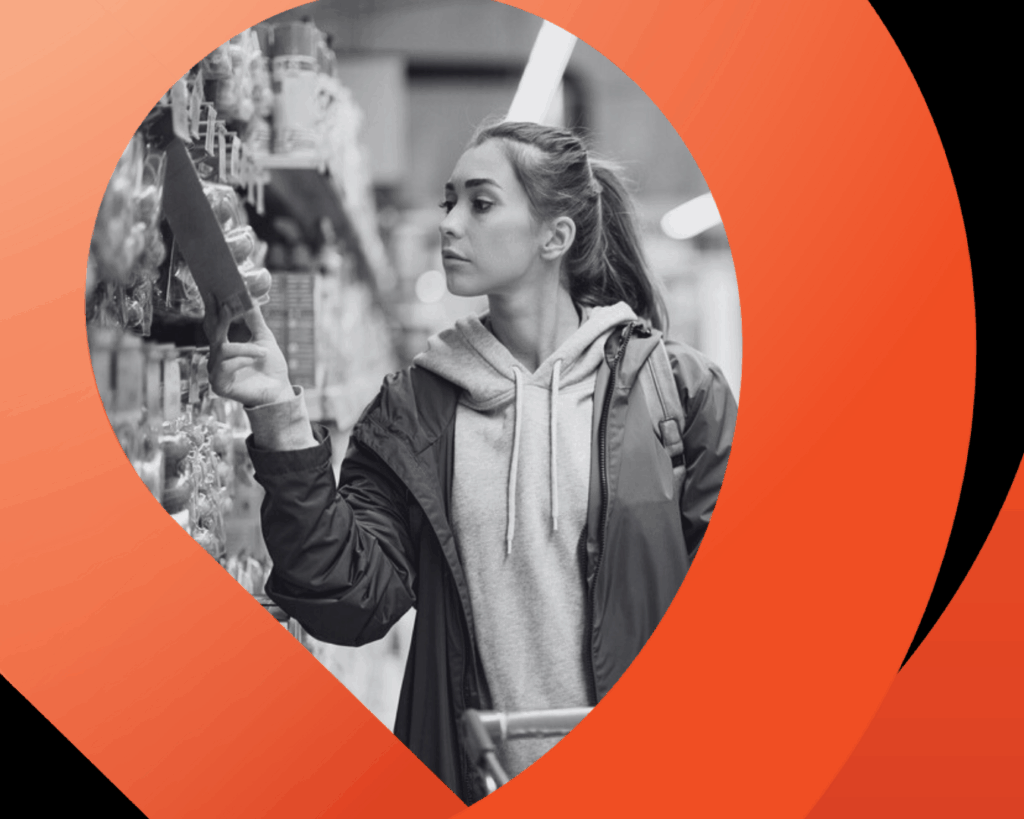Assume and Doom: Chapter 1 – Sustainability and Organic Food Behavior During Inflation

Welcome to Quester’s new series “Assume and Doom,” where we present some prevalent assumptions, then bring clarity to them using our intuitive and informative ability to dig into social narratives to see what consumers are saying about these issues. So many times, people on all levels within a company hear about trends and buzzwords, or read one article about a topic and make assumptions based on limited information, then sometimes make knee-jerk decisions that do not help their business. So we’re here to bring clarity to current issues so companies don’t fall prey to the “Assume and Doom.”
While most social listening/analytics quantifies large ideas and metrics, Quester social narratives go underneath the numbers to explain consumer behaviors, emotions, and motivations. We focus on the deep “why,” offering insight into implications, directions, and whitespaces. Because all consumer decisions are influenced by narratives—what they hear, read, watch, and discuss- social listening or analytics may not fully explain, analyze, or break down how these narratives are affecting consumer behavior.
While sometimes these assumptions will be an easy “true” or “false,” in most cases, as is common with human behavior, we’re predicting there will be a lot of nuances. Issues like these generally are not black-and-white.
The quotes you see in these articles are pulled from the various social platforms from which we analyzed the narratives and are representative of many thousands of discussions about the themes, not as “one-off” quotes from a qualitative study.
This first chapter explores consumer behavior towards sustainability and purchasing organic foods during inflationary times, like what we are enduring now.
Assumption: During inflationary times, consumers care less about sustainability and purchasing organic foods to spend their resources elsewhere.
Sustainability:
Verdict: True, but it’s a case of something else being more important, not pure cost: While many consumers are saying these cutbacks in sustainable behavior and purchases are about cost, many others say it’s more an issue of other things taking priority. As we know, the economy and high cost of living are constantly on consumers’ minds. Most say sustainability and the environment are still important, but there are just so many other things on their minds right now.
My living costs have skyrocketed, I can’t worry about the environment that your grandparents polluted!
We just had 8% inflation so my power bill went up 20% in response. Inflation keeps rising and rising. The environment is the least of my worries.
Buy disposable – You can’t worry about the environment until you’ve taken care of yourself so don’t even make that argument.
Energy costs are killing me, who can worry about anything else??
The most positive sustainability/environmentally friendly narratives are those where consumers see direct impact, like for every “x” you purchase, “y” many trees will be planted, or “x tons of trash removed from the ocean.” Something tangible is discussed more than companies reducing greenhouse gas or lowering their carbon footprint.
They’ve planted over 125,000 trees – every time someone purchases a notebook they plant a tree. [Baron Fig]
We did uncover one interesting and encouraging narrative—the bar is getting higher for sustainable products. A few years ago, a product that was more sustainable (like paper towels) was given a bit of a pass if it didn’t work as well as the non-sustainable product, even if it was more expensive. Now, the products with a higher price that are sustainable must be just as good as their counterparts. It may be less about the cost and more about the inconvenience.
Just not very absorbent. Not as bad as some of the recycled paper towels, but just not up to the job. Unfortunately. Back to regular paper towels.
This case of rising expectations was most recently seen with alternative foods, like gluten-free, dairy-free, vegan, or plant-based. It used to be acceptable for these products to “taste like cardboard” or not be very tasty, simply because they were alternative options. Now consumers expect any food to be tasty, regardless of if it’s alternative or not.
So just being “sustainable” isn’t enough anymore. It reminds us of the Volkswagen ad campaign for their ID.4 electric vehicle (https://www.youtube.com/watch?v=9X4c57En-R0). It was one of the first and most memorable ads to highlight the insight that just being “sustainable” is not enough. Its tagline, “Before it can change the world, it has to change yours,” sent a message Volkswagen understands that self-interest drives human behavior—and anyone who argues against this simply hasn’t done the basic level of study into human behavior. We like to hope humans will simply act altruistically with no self-benefit, but that is just not the case.
The good news is that all other research into sustainability has shown that a growing number of mainstream consumers are showing interest in more sustainable products, but only if they are minimally as good as regular products and provide a benefit to them, not just the environment.
Assumption: During inflationary times, consumers care less about sustainability and purchasing organic foods to spend their resources elsewhere.
Organic Foods:
VERDICT: Kind of, and there are some organic foods that can easily get traded: The recent spike in egg prices has many thinking (and worrying) about future expenses. There are some foods that are easier for consumers to “trade down” to non-organic, like flour, baked goods, and most meats (with those who eat chicken being the only ones on the fence). When it comes to vegetables and fruit, however, those may be the last organic foods consumers are willing to give up—the exceptions being mainly fruits with an outer skin you peel, such as oranges and bananas. Many fruits or vegetables without a skin are on the well-known “dirty dozen list,” and consumers who frequently purchase organic will try to not go conventional with those items.
I eat organic (and I am on food stamps), but there are some things I feel okay about eating conventional. I use the clean 15 and dirty dozen lists from the Environmental Working Group.
Beans are one of the foods that are okay to eat conventional because the plants don’t require much if anything in terms of pesticides. I buy a lot of organic food but get conventional beans.
However, as prices climb higher for conventional foods, the organic versions may not be that much more or are almost at price parody. It obviously makes sense when the cost difference is negligible. Plus, with more store brands offering organic options, it helps keep those costs down.
It was 5 dollars for just a dozen Walmart branded eggs! It’s now cheaper to get the organic free-range eggs.
I think that “store brand” groceries are often as good or better than the fancy brands now. They even have their own organic lines of most items and they are very affordable.
There is an interesting conversation around organic food that is less about eating it and more about helping the environment. Despite the readily available scientific evidence that organic foods are better for the environment, regular consumers have not been aware of it or talking about it. But we are now seeing building discussions around this topic: less pesticides, organics = sustainable farming, crop rotations, and other earth-friendly farming practices. The big thing here is that people are starting to understand that organic food’s big, holistic advantage is in the way it is farmed—better for the earth and for your belly.
I think you’d agree that environmentally it’s best if everyone is vegan but that it’s not all that likely to happen and that encouraging people to eat less meat or look for sustainable farming practices is worthwhile.
Eat meat if that’s your thing, just support and call for sustainable farming wherever possible.
Personal and community gardening has picked up steam in the past few years, especially as many learn about growing gardens in containers—a pandemic trend that seems to be continuing. The attraction is less about saving money and more about controlling how food is grown and food with better nutrients.
I expand my veggie garden bit by bit every year. I added a rain garden, expanded the pollinator garden, and put in some berries last season. This season I am adding more natives and putting some focus on building long term soil health.
Gardening – more nutritious food – no herbicides, pesticides or GMOs.
It’s pretty easy now for people to acknowledge organic foods are not a fad but a lifestyle, even among lower-income consumers. Yet they can still be traded off by many consumers when there is a large cost differential. The challenge for organic food producers and companies is to stay competitive during inflation and recession.

